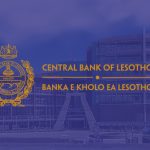
Monetary Policy Committee (MPC) Statement of the 28th January, 2020
January 28, 2020
Monetary Policy Committee (MPC) Statement of the 14th April, 2020
April 14, 2020The Monetary Policy Committee (MPC) of the Central Bank of Lesotho (CBL) held an extraordinary meeting on the 23rd March 2020. During this meeting, the Committee considered international, regional and domestic economic developments and financial markets’ conditions in light of the unfolding global socio-economic crisis triggered by the outbreak of the coronavirus disease (COVID-19).
The global spread of the coronavirus has raised concern across the world and heightened economic uncertainty. The uncertainty brought about by the outbreak of COVID-19 has put global economic activity at risk. According to the Organisation for Economic Cooperation and Development (OECD), global economic growth could reach 1.5 per cent in 2020, compared to an earlier projection of 2.4 per cent, as firms suspend their activities and workers stay at home to contain the spread of the virus. This rate of growth would be the lowest since 2009.
Advanced economies, including the United States (US) and the European Union (EU), are likely to contract in the short to medium term, owing to a decline in trade and weak economic activity in industries such as air travel, hotels, and restaurants. The travel industry has been severely affected, with airlines cutting flights and tourists cancelling business trips and holidays. Governments around the world have introduced travel bans in an effort to contain the spread of the virus. In China, economic growth is also likely to contract owing to the state of near lockdown that was imposed on many parts of the country. In South Africa, economic growth is expected to decline by 0.2 per cent in 2020, against the earlier projection of 1.2 per cent.
Financial markets globally were characterised by heightened volatility and general risk off behaviour as measured by the global financial stress index. Yields in advanced economies declined whereas those of the emerging market economies, particularly in South Africa, increased. This is likely to result in exchange rate depreciation.
In response to these developments, major central banks have taken measures to support their economies by cutting interest rates. Furthermore, to ease the tightening financial conditions, major central banks have also started injecting liquidity into the financial sector, to prevent a possible credit crunch. On the fiscal policy side, a number of governments have introduced stimulus packages to mitigate the impact of the shock on the affected households and businesses.
The domestic economy is also likely to suffer a major blow from the epidemic. Among the sectors that are likely to be affected by the epidemic is the textiles and clothing sector. On the supply side, the pandemic is likely to disrupt the supply of textiles and clothing inputs from China. Externally, the global economic slowdown induced by higher uncertainty and increased precautionary behaviour, especially in the US and SA, will impact negatively on the demand for textiles and clothing exports. These developments are likely to have a negative impact on the industry leading to a fall in production. Given the relative size of the textile and clothing sector in the economy, especially in terms of employment, and its interlinkages with other sectors of the economy, these developments are likely to have adverse effects on the broader economy, especially wholesale and retail sectors, as well as transport and logistics.
The travel and tourism sector is also likely to take a huge knock. Measures such as travel restrictions, aimed at containing the spread of the COVID-19 virus, are likely to have negative effects on the sector by reducing the number of tourists coming to Lesotho.
Inflation was recorded at 4.2 per cent in February 2020, in contrast to 4.1 per cent in January 2020. Upward pressures on inflation are likely to persist given negative supply shocks and a depreciating local currency. This is despite some respite coming from a fall in the global price of oil due to a general decline in global economic activity.
In the banking sector, weak economic activity is likely to increase credit risk as borrowers struggle to meet loan repayment schedules, and result in high nonperforming loans. While this would ordinarily lead to tighter financing conditions, prevailing circumstances warrant the opposite.
In Q4 2019, the stock of foreign reserves registered 4.3 months of import cover, up from 4.2 months of import cover in September 2019. This was the result of a reduction in import bills during the period under review.
Against the backdrop of these developments, domestic economic outlook is expected to remain fragile in the short to medium term. Growth is expected to be lower than the Bank’s forecast of 2.2 per cent and 4.1 per cent in 2020 and 2021, respectively. The fiscal position is expected to remain under pressure as government responds to the pandemic.
Having considered these developments, the MPC decided to:
- Increase the NIR target floor from US$630 million to US$660 million.
- Reduce the CBL rate by 100 basis points from 6.25 per cent to 5.25 per cent per annum.
Given the highly uncertain global and economic outlook, the MPC shall continue to monitor the developments closely and respond accordingly.
A.R. Matlanyane (PhD)
GOVERNOR
Contact Person:
Ephraim Moremoholo +266 22232094
emoremoholo@centralbank.org.ls

